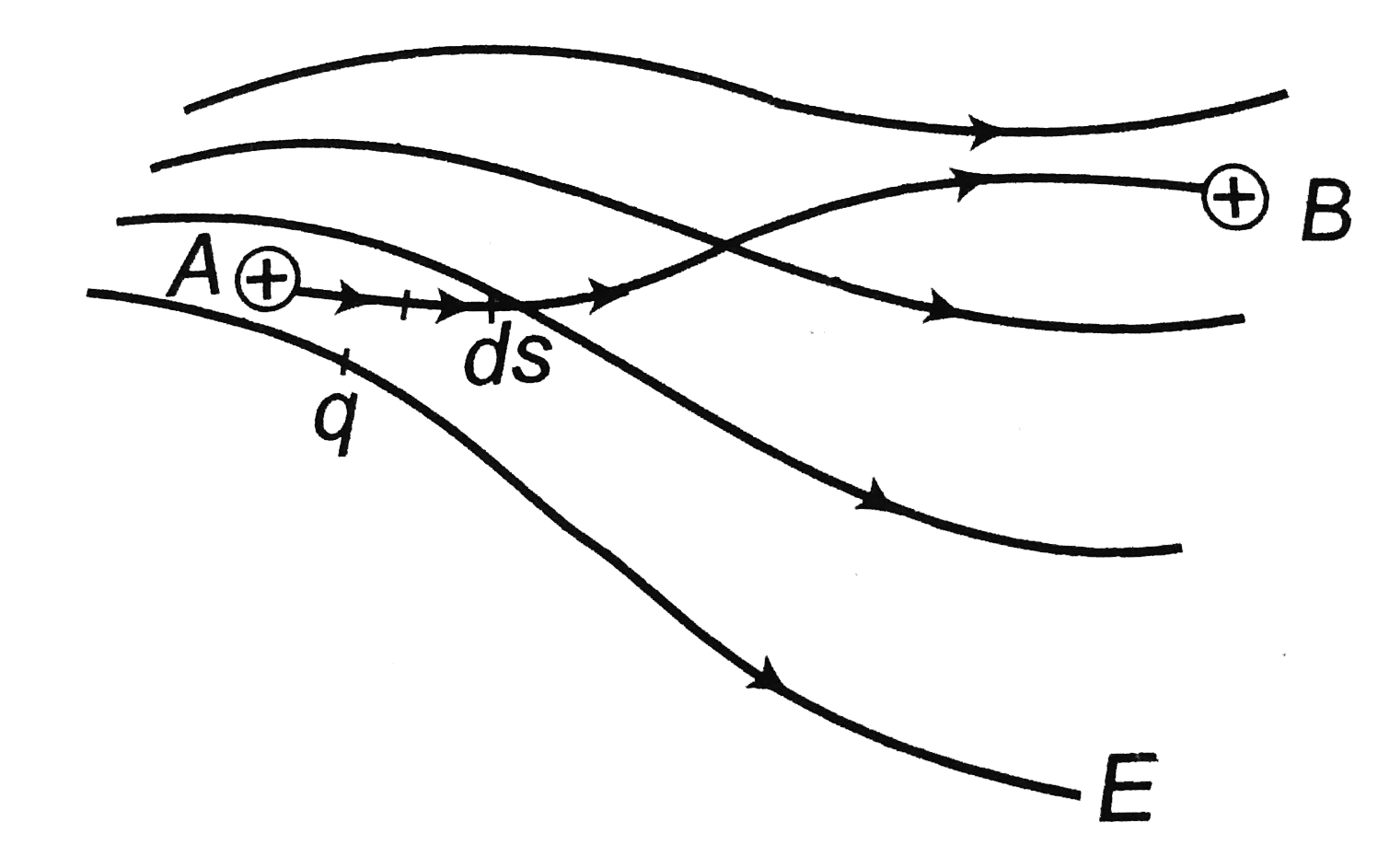For two points A and B in an electric field, if ΔW is work done in taking a test charge q' from A to B,ΔU=VB−VA is charge in potential energy of a rest charge when it is moved from A to B.

ΔV=VB−VA is charge in potential due to field if we move along path AB from A to B and ds is differential displacement along path AB.
Then, which of the following options is correct ?
VB−VA=∫BAE.ds
ΔW=−q'∫BAE.ds
ΔV=ΔUq'
ΔV=ΔWq'=ΔUq'
The correct Answer is:C
For small displacement ds, work done by the electric
field (ΔW)electric force=Fe.dr
The change in potential ΔV is given
ΔV=−[ΔW]electric forceq'=ΔUq'
Topper's Solved these Questions
- BOOK - A2ZCHAPTER - ELECTRIC POTENTIAL & CAPACITANCEEXERCISE - Section B - Assertion Reasoning17videos
ELECTRIC POTENTIAL & CAPACITANCE
- BOOK - A2ZCHAPTER - ELECTRIC POTENTIAL & CAPACITANCEEXERCISE - AIPMTNEET Questions38videos
ELECTRIC POTENTIAL & CAPACITANCE
- BOOK - A2ZCHAPTER - ELECTRIC POTENTIAL & CAPACITANCEEXERCISE - Capacitor Circuits52videos
ELECTRIC POTENTIAL & CAPACITANCE
- BOOK - A2ZCHAPTER - ELECTRIC CHARGE, FIELD & FLUXEXERCISE - Section D - Chapter End Test29videos
ELECTRIC CHARGE, FIELD & FLUX
- BOOK - A2ZCHAPTER - ELECTROMAGNETIC INDUCTIONEXERCISE - Section D - Chapter End Test30videos
ELECTROMAGNETIC INDUCTION
Similar Questions
Knowledge Check
- Question 1 - Select One
Work done in moving a charge q coulomb on the surface of given charged conductor of potential V is
AVq jouleBVq jouleCqV jouleDZero - Question 2 - Select One or More
The work done to move a charge along an equipotential from A to B
Acannot be defined as −∫BA→E→dlBmust be defined as −∫BA→E.→dlCis zeroDcan have a non-zero value - Question 3 - Select One
15 joule of work has to be done against an existing electric field to take a charge of 0.01 C from A to B. Then the potential difference (VB−VA) is :-
A1500 voltB−1500 voltC0.15 voltDnone of these
" The work done in taking a charge of "+4" coulombs from A to "B" is "200" joules.If the potential of "B" is "10" volts,the potential of A in volts "
View SolutionA charge is moved in an electric field of a fixed charge distribution from point A to another point B slowly. The work done by external agent in doing so is 100J . What is the change in potential energy of the charge as it moves from A to B ? What is the work done by the electric field of the charge distribution as the charge moves from A to B ?
View Solution20 J of work has to be done against an existing electric field to take a charge of 0.05 C from A to B. How much is the potential difference VB−VA ?
View SolutionThe work done in moving a charge from one point to the other is 20J. If the potential difference between the points is 10V, the charge is:
View SolutionThe potential energy of a charged conductor of charge (q) and potential (v) is given by
View Solution

